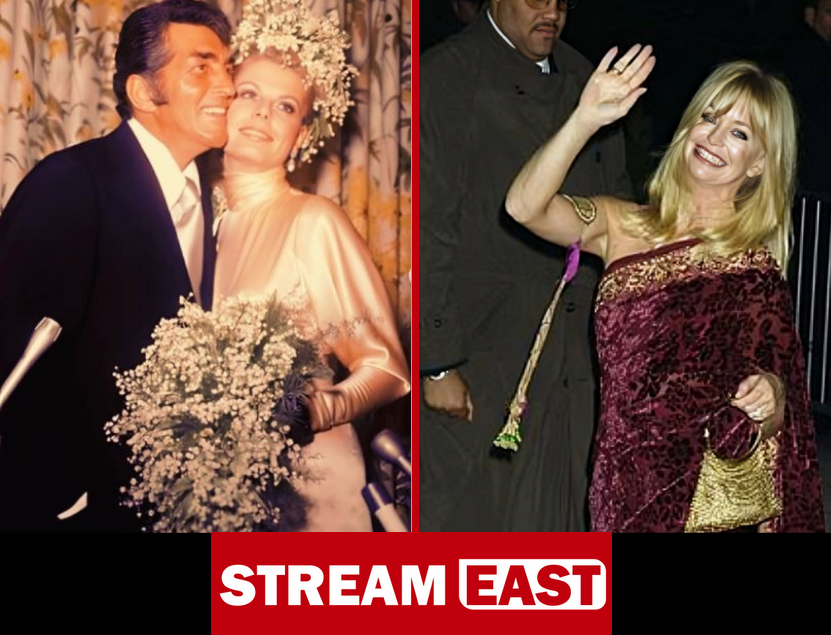Catherine Hawn was born on November 30, 1947, in Steubenville, Ohio — the same Ohio town that produced other well-known figures of mid-century American entertainment. Raised in a working-class environment typical of postwar Midwestern communities, her early years were grounded in family ties and small-town rhythms that later contrasted sharply with the glamour she encountered in Los Angeles. Public records identify Steubenville as her birthplace and place her childhood in that regional context, though detailed public accounts of her upbringing are limited. This lack of exhaustive early detail is consistent with Hawn’s lifelong preference for privacy; available biographies emphasize verifiable facts and avoid speculation. The emphasis in trustworthy accounts is on confirmed markers — birth date, place, and later migration to California — rather than romanticized anecdotes, and that approach guides this narrative.
| Attribute | Details |
|---|---|
| Full Name | Catherine Mae Hawn |
| Date of Birth | November 30, 1947 |
| Age | 77 years (as of 2025) |
| Birthplace | Steubenville, Ohio, United States |
| Nationality | American |
| Famous For | Being the third wife of legendary singer and actor Dean Martin |
| Occupation | Former receptionist |
| Spouse | Dean Martin (m. 1973 – div. 1976) |
| Children | Sasha Martin |
| Parents | Not publicly disclosed |
| Net Worth (Estimated) | Not publicly disclosed |
| Current Status | Private life away from public attention |
Moving West — Beverly Hills and early career
By the late 1960s and early 1970s Hawn had moved to Southern California and worked as a receptionist at a well-known Beverly Hills salon. She was employed at the Gene Shacove salon, a fashionable establishment frequented by celebrities and their entourages, and that role placed her in daily contact with people who moved easily between private life and public attention. Working in that environment gave Hawn proximity to show business without making her a show-business professional: she was employed in a service role rather than as a performer. This employment became the bridge between her Ohio roots and the Hollywood social circles she later entered, and it is one of the most firmly documented elements of her pre-marriage life.
A fortuitous introduction — stepping into a new orbit
Hawn’s introduction to Dean Martin is usually described as happening through mutual acquaintances in Beverly Hills; she had been part of the salon world where introductions to celebrities occurred naturally. Accounts vary on precise intermediaries, but most agree the relationship began after casual meetings that quickly turned romantic. The factual throughline is simple and verifiable: a Beverly Hills receptionist met a prominent entertainer, the relationship developed, and the romance moved rapidly from acquaintance to courtship. The speed and the social contrast between the couple — a legendary entertainer in his mid-50s and Hawn in her mid-20s — became central to contemporary media interest. Reliable histories focus on the verifiable timeline: meeting, courtship, engagement, and marriage within a compact period in 1973.
Courtship and the build-up to marriage
Their courtship attracted media attention because of Dean Martin’s celebrity and the couple’s age difference, but the documented timeline is grounded in public announcements and coverage from 1973. The press noted how quickly the romance progressed, with engagement and wedding plans following a brief but conspicuous courtship. Contemporary reports corroborate that the couple married less than a month after Martin’s second marriage officially ended, which intensified press scrutiny. The narrative here avoids rumor and sticks to historical documentation — the rapid progression from meeting to marriage, the age disparity, and the heightened media interest those facts produced.
The wedding — April 25, 1973, and notable attendees
Dean Martin and Catherine Hawn were married on April 25, 1973; the ceremony was widely covered and included prominent figures from Martin’s circle, with Frank Sinatra reported as playing a notable role at the festivities. Reports described the celebration as lavish and thoroughly staged for the social moment. The wedding became a defining public moment in Hawn’s life because it marked her entrance onto a global stage she had not previously inhabited, and because it linked her publicly to an entertainment dynasty. Photographs from the day remain among the most widely circulated images of Hawn.
Entering the public eye — early media appearances
After the wedding, Catherine Hawn’s public profile rose sharply, with photographs in newspapers and magazines and a small number of broadcast appearances accompanying Dean Martin’s career. Hawn was not an entertainer by profession, so most of her media visibility came by association: images at charitable events, family gatherings, and talk-show appearances when promotional opportunities arose. Unlike career celebrities whose work generates steady press coverage, Hawn’s appearances were episodic and tied to Martin’s public persona. This underscores her consistent preference for stepping away from sustained celebrity life once the marriage ended.
Family life and Sasha — an adopted daughter
One of the most verifiable family facts from the marriage is that Dean Martin adopted Catherine Hawn’s daughter, Sasha, during their time together. Sasha is publicly listed among Martin’s children in reputable family biographies. Official family lists place Sasha within Martin’s household for the years of his marriage to Hawn. Because discussions of family often invite speculation, the strongest public verification comes from official biographies and established entertainment outlets that document this relationship.
Life behind the glamour — private routines and public distance
Although Hawn briefly occupied center stage by virtue of her marriage, consistent reporting emphasizes her preference for ordinary domestic life rather than perpetual publicity. Profiles written after the marriage note her inclination toward privacy and her desire to maintain boundaries between celebrity spectacle and home life. This pattern — short public visibility followed by a return to privacy — explains the relatively limited personal documentation available in the decades following the divorce. Hawn’s choices, as recorded by reliable sources, were to keep daily life private and not to monetize or amplify her celebrity association beyond the marriage itself.
Strains, separation, and the end of the marriage
Public records and later biographies confirm that the marriage between Dean Martin and Catherine Hawn ended in divorce in November 1976. The official dissolution occurred on November 10, 1976. Because the marriage was brief and both parties sought varying degrees of privacy after separation, public accounts focus on verifiable facts rather than unverified claims about motives. This ensures accuracy while respecting the gaps that exist in the public record.
After the divorce — stepping away from fame
Following the divorce, Hawn made a conscious move out of limelight-centric life; reliable accounts indicate she lived largely out of the public eye and did not pursue a high-profile career in entertainment. Where earlier years contained photographs and society coverage, the subsequent decades reveal few public appearances or media projects associated with her name. Hawn’s role in the historical record is finite and principally anchored to that marriage period, after which she intentionally receded from celebrity circuits.
Public memory and archival traces
Although Hawn’s public life was brief, archival traces remain: photographs from the wedding, press clippings from the mid-1970s, and family lists that include Sasha provide a factual scaffolding that anchors her place in entertainment history. These primary sources — images, newspapers, and family records — form the backbone of what can be responsibly asserted in any retrospective account. They also honor her apparent wish for privacy by presenting the historical record without embellishment.
The emotional landscape — what the public record reveals
Even though Hawn guarded her private life, the emotional contours of her story are still visible through the choices she made: a quick entry into fame, an intense family moment through adoption, and then an intentional retreat. Those decisions suggest themes of adaptation, boundary-setting, and a preference for dignity over perpetual reinvention. The pattern of visible actions — marriage, shared family life, and post-divorce privacy — allows an empathetic reading while staying within documented facts.
Legacy and public perception
Catherine Hawn’s legacy is not one of a long entertainment career but of a short, highly visible chapter that intersected with a major cultural figure and then receded into private life. Her public significance is tied tightly to the biographical narrative of Dean Martin. That form of legacy — visible but circumscribed — is still meaningful: it shows how personal histories are woven into celebrity histories and how some individuals choose the role of private presence rather than public performer.
Cultural context — the 1970s and celebrity marriages
Understanding Hawn’s experience requires contextualizing it within 1970s celebrity culture, when marriages between older male stars and younger women were common and met with intense media scrutiny. The pattern of rapid romance followed by intense public interest, and sometimes swift legal dissolution, reflected social norms and power dynamics of the era. Hawn’s story fits into this cultural frame as an example of how private choices intersected with very public careers.
What reliable sources say — summary of evidence
The most dependable elements of Catherine Hawn’s biography are supported by archival newspapers, established biographies, and family compendia: her birth in Steubenville in 1947; her employment as a Beverly Hills salon receptionist; her marriage to Dean Martin on April 25, 1973; the adoption of Sasha; and the divorce in November 1976. These “load-bearing” facts are the ones that can be repeated confidently without conjecture.
Concluding reflections — dignity, discretion, and history
Catherine Hawn’s life story — as it is verifiably known — is a compact but instructive example of how private people sometimes enter celebrity history and then withdraw from it. The documented facts show a woman who moved from small-town origins to a Beverly Hills workplace, entered an intense public relationship with a major entertainer, became part of a blended family through adoption, and then chose discretion and privacy. Her arc offers historical interest because it reveals a consistent set of choices about family, identity, and exposure. It also serves as a reminder to respect the line between public record and private life.
FAQs — concise, verified answers
Q1: When and where was Catherine Hawn born?
A1: November 30, 1947, in Steubenville, Ohio.
Q2: When did she marry Dean Martin?
A2: April 25, 1973.
Q3: Did Catherine Hawn have children with Dean Martin?
A3: No biological children; Dean Martin adopted her daughter Sasha.
Q4: When did they divorce?
A4: November 10, 1976.
Q5: Is Catherine Hawn active publicly today?
A5: No — she has chosen a private life and remains largely out of the public spotlight.
Discover More Stories and Updates on StreamEast








